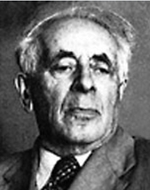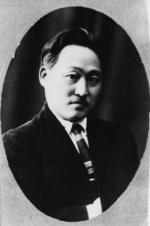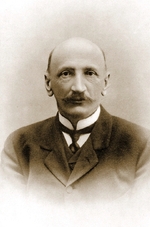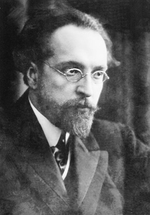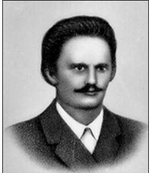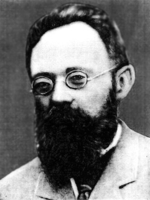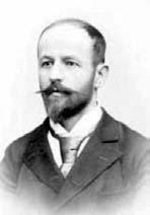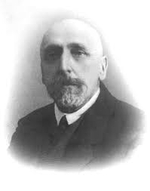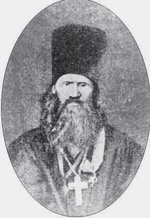Articles
Kryvelev Joseph (1906–1991)
Kryvelev Joseph (1906–1991) – philosopher, historian of religion.
He studied at the Moscow Institute of Philosophy, Literature and History, taught Marxist-Leninist philosophy since his student’s times (since 1932). Graduating the institute in 1934, he got a position of Researcher at the Central Committee of the League of Militant Atheists; since 1936, he worked at the Central Anti-religious Museum; since 1939 – at the Institute of Philosophy of the Ac. of Sc. of the U.S.S.R. IN 1941, went to the front, was seriously wounded. In 1947-1949, he worked again at the Institute of Philosophy, but was fired out in the course of the campaign ‘against cosmopolitans’. Since 1959, he was Senior Researcher of the Institute of Ethnography of the Ac. of Sc. of the U.S.S.R. Doctor in Philosophy (1964).
Read More
Ksenofontov Gavriil (1988–1938)
Ksenofontov Gavriil (1988–1938) – specialist in the history, ethnography and folklore of Yakuts, Buryats, Evenks.
He made several long expeditions in the central regions of Yakutia (1921), low parts of the rivers Lena and Oleniok (1923-1924), along the route Yakutsk – West-Kanagalass Ulus – Viluisk District – Chona – Erbogachion – Low Tunguska – Krasnoyarsk – Khakassia – Western Buryatia (1925-1926).
Material collected in the expeditions laid in the foundation of the works on folklore, ethnography, and history of the native peoples of Siberia. He considered that folklore kept data on some real historical events, therefore, it would be possible to reconstruct them comparing legends and tales
Read More
Kulakovsky Yulian (1855–1919)
Kulakovsky Yulian (1855–1919) – philologist in classical studies, specialist in Byzantine studies, archeologist.
He was born in a big family of a priest, learnt at a gymnasium in Vilno; in 1871-1874 – at the Lyceum of Tsarevich Nickolay of the Moscow University (in 1874, he was awarded with a silver medal for his composition on the myths about Orestes). In 1876, he graduated from the Historical and Philological Faculty of the Moscow University; till 1878 he worked at the Lyceum of Tsarevich Nickolay. In 1878-1880, he was sent by the University to an educative travel to Europe; he visited the Universities of Bonn, Tubingen, and Berlin. Since 1880, he was Ass. Docent of the Moscow University; since 1884 – Ass. Professor; since 1888 – Full Professor, later – Honourary Professor.
Read More
Kun Nickolay (1877–1940)
Kun Nickolay (1877–1940) – specialist in classical culture, historian of religion.
In 1903, he graduated from the Moscow University with the diploma of the I degree, but his position there was not confirmed by the Inspector of the Educational District who suspected K. in revolutionary activity. So, he started to work as teacher at the Maximovich Female Teachers-Training Seminary in Tver’. In 1905-1906, she passed his training period in Berlin – at the Berlin University and at the Museum of Ethnology. In 1906, he returned to Russia and was elected for Chairman of the Council of Tver’ private real school. Since 1907, he was lecturer and Chairman of the newly founded Open People’s University in Tver’; in 1908-1918, he was Professor of the World History at the Tikhomirov High Female Teachers-Training Courses, gymnasium lecturer and teacher in Moscow; he also made lectures at the Moscow Society of people’s Universities.
Read More
Kurganov Fedor (1844–1920)
Kurganov Fedor (1844–1920) – Byzantine scholar, historian of the Church.
He was from a family of a countryside priest. He graduated from a theological school and the Penza Theological Seminary. In 1870 he graduated from the Kazan Theological Academy, having received Master's degree in Theology for his thesis: ‘The Administrative System of the Church of the Greek Kingdom’ (published in Kazan in 1872). From 1870 to 1885, he held the department of the Church history at the Kazan Theological Academy. In 1880, he got Doctor of Theology degree for his thesis ‘Relations Between Ecclesiastic and Civic Authorities in the Byzantine Empire. Review of the Era of Shaping and the Final Establishment of Certain Relationship Between Ecclesiastic and Civic Authorities in Byzantium (325‒565)’.
Read More
Kuznetsov Nickolay (1863–1936)
Kuznetsov Nickolay (1863–1936) – lawyer, theologian, specialist in the canonic law.
In 1886, he graduated from the Moscow University; in 1891 – the St. Petersburg Spiritual Academy. In 1901, he defended his Candidate thesis ‘Christianity as an Ideal of Human Private Life at the First Steps of His Development’ at the St. Petersburg Spiritual Academy; in 1911 – his Master thesis ‘On the Issue of the Free Will: Law on the Old Believers Communities in the Context of the Church and State Relations’ at the Kazan’ Spiritual Academy. In 1905, he entered the Special Pre-Council Group; in 1917-1918 – member of the Holy Council of Russian Orthodox Church.
He started his professional carrier as Ass. Attorney, later he taught at the Chair of Canonic
Read More
Kuznetsov Stepan (Stephan) (1854–1913)
Kuznetsov Stepan (Stephan) (1854–1913) – historian, archeologist, ethnographer.
He was born in a peasants family. In 1877, he graduated from the Kazan’ University; then worked as Ass, Docent of the Chair of Ancient Languages and Classical Philology at the same university. In 1879-1895, he was Curator of the University Museum of Ethnography, Antiquities and Fine Arts. In 1885-1902, he worked in Tomsk: the first Director of the Tomsk University Library – one of the best in Siberia. In 1902, he retired and moved to Moscow.
He made lectures in Historical Geography, Library and Museum Work at the Moscow Archeological Institute. A part of his lectures was published: ‘Russian Historical Geography. Iss, I: Merya, Meshchera, Muroma, Ves’ Peoples’. Moscow, 1910; ‘Iss. II: Mordovians’. Moscow, 1912.
Read More
Kvachala Jan (Ivan) (1862–1934)
Kvachala Jan (Ivan) (1862–1934) – philosopher, historian of religion.
He was born in Petrovac (now in Monte Negro); his real name was Jan Rodomil, but in Russia he was called Ivan Ivanovich. In 1883, he graduated from the Theological Academy in Pressburg (now Bratislava), where he studies history, literature, philology, and philosophy. Then, he studied at the University of Leipzig, where his main disciplines was also theology, besides history, philology, and philosophy. In 1885, for the composition on Jan Amos Comenius, K. got the Doctor degree in Philosophy. Later, in 1893, the theological Faculty of the University of Wien awarded him with the degree of Doctor in Theology for his research ‘J. A. Comenius, sein Leben und seine Schriften’; in the autumn of the same year, K. received an invitation to the University of Yuriev (later Dorpat and now Tartu), for the Chair of Historical Theology. Since 1901, he edited the magazine ‘Casopis pre evangelicke bohoslovie’.
Read More
Lakhtin Mikhail (1869–1930)
Lakhtin Mikhail (1869–1930) – psychotherapist, historian of medicine.
He was born in Moscow, studied at the Fourth Moscow Gymnasium; in 1894, he graduated from the Physics and Mathematics Faculty, and, in 1897, from the Medical Faculty of the Moscow University, after which he worked as medical doctor on the Northern Railway for a year, and then in a private psychiatric clinic. In 1901, he defended his thesis ‘Large Operations in the History of Surgery’; since 1902, Ass. Professor of the Department of the History of Medicine at the Moscow University. During the Russian-Japanese War and WWI, L. was involved in the organization and provision of psychiatric assistance to military personnel; after the Revolution 1917, he participated in the creation of a system of sanatoriums for the mentally ill, taught for a short time, then, worked as a psychiatrist.
Read More
Landyshev Stephan (Stepan) (1816‒1883)
Landyshev Stephan (Stepan) (1816‒1883) – archpriest, member (later Head) of the Altai Orthodox Mission, translator, researcher of beliefs of the Altai native population.
He was a disciple of Archimandrite Macarius (Glukharev). In 1836, at the age of 20, L. came to Altai; eight years he spent under the spiritual guidance of Arch. Macarius. He headed the Altai Ecclesiastic Mission from 1845 till 1866. During that period, about 30 settled villages of Christened Altai people were organized: Low Karaguzh, Upper Karaguzh, Chemal, Ilyinskoe, and others. His wife provided him a sincere support: she knew Altai language and taught newly Christened people to read and write, to understand the basics of faith, some elements of settled household, took care about ill persons. Under the supervision of L., seven missionary primary schools were opened. In 1875, he retired because of the illness.
Read More
Showing 141-150 of 351 items.

